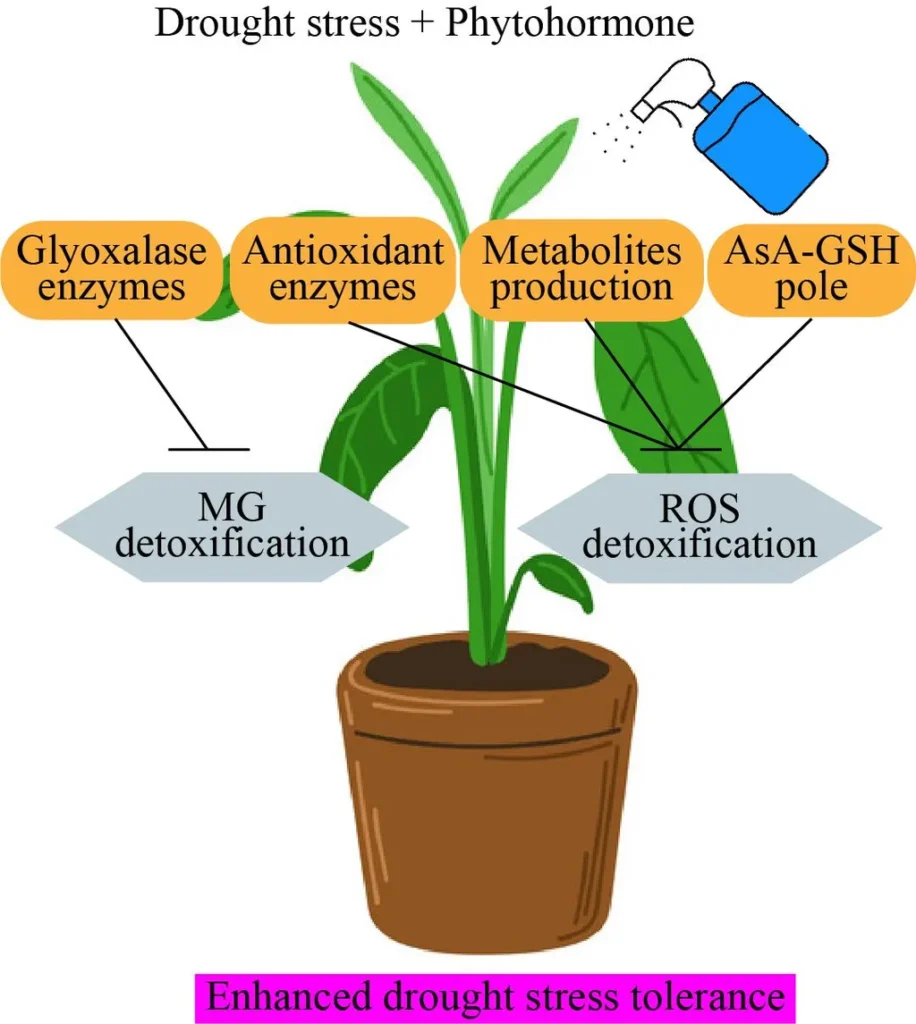In the heart of Egypt, researchers are unlocking new ways to combat drought stress in sweet potato plants, a crop vital for food security and bioenergy production. Mahmoud S. Amin, a horticulturist from Ain Shams University in Cairo, has been exploring the potential of γ-aminobutyric acid (GABA) to mitigate the effects of water scarcity on sweet potato plants (Ipomoea batatas). His findings, published in the journal “Notulae Botanicae Horti Agrobotanici Cluj-Napoca” (which translates to “Botanical Notes of the Agrobotanical Garden Cluj-Napoca”), offer promising insights for farmers and the energy sector alike.
Drought stress is a significant challenge for sweet potato cultivation, leading to reduced growth, lower yields, and compromised nutritional quality. Amin’s study investigated the role of GABA, a naturally occurring amino acid, in alleviating these effects. “We found that applying GABA, particularly at a concentration of 1 mM L-1, can partially normalize the detrimental effects of drought stress,” Amin explains. This treatment enhanced the plants’ water status, osmotic adjustment, and antioxidant defenses, ultimately improving nutrient uptake and yield.
The study involved two irrigation regimes: 50% and 70% exhaustion of available soil water, simulating different levels of drought stress. Under these conditions, sweet potato plants exhibited increased levels of osmolyte content (free amino acids, soluble sugars, and proline), lipid peroxidation, and peroxidase activity. However, the application of GABA, especially at the higher concentration, mitigated these stress responses. “The 1 mM dose was more effective than 0.5 mM L-1 in enhancing SPAD rate, dry matter, and carotene content,” Amin notes. This suggests that GABA could be a valuable tool for farmers looking to sustain sweet potato production in semiarid regions.
The implications of this research extend beyond the agricultural sector. Sweet potatoes are not only a crucial food crop but also a significant source of bioenergy. Enhancing their drought resistance could stabilize supply chains and contribute to energy security. “By improving the resilience of sweet potato plants, we can ensure a more reliable source of biomass for bioenergy production,” Amin says. This could be particularly impactful in regions where water scarcity is a growing concern.
The study’s findings highlight the potential of GABA as a priming method to reduce the negative effects of drought stress. As climate change continues to exacerbate water scarcity, such innovative approaches will be essential for maintaining agricultural productivity and food security. Amin’s research offers a glimpse into the future of sustainable agriculture, where biotechnology and traditional farming practices converge to overcome environmental challenges.
In the quest for sustainable solutions, Amin’s work stands out as a beacon of hope. By harnessing the power of GABA, farmers and energy producers can adapt to the changing climate and secure a more resilient future. As the world grapples with the realities of water scarcity, this research provides a compelling example of how science can drive progress and innovation in the face of adversity.

